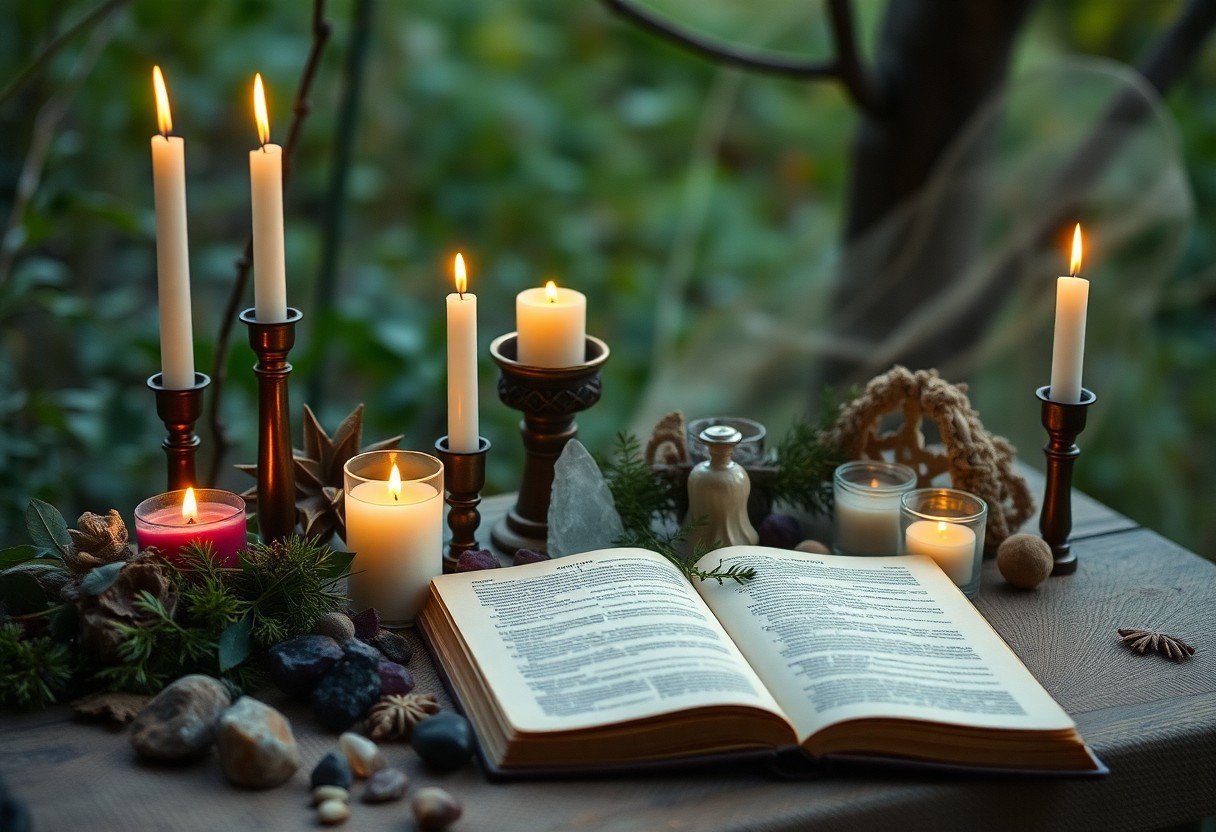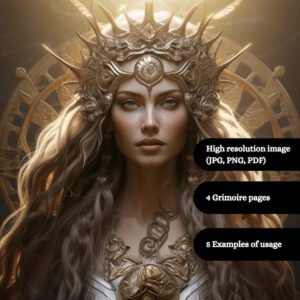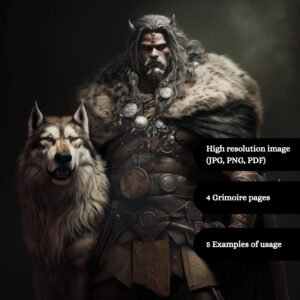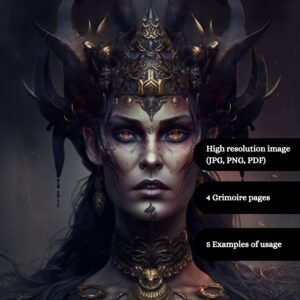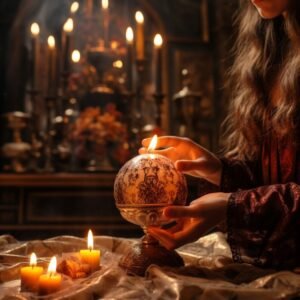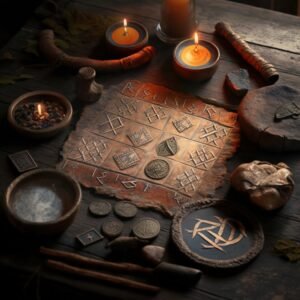There are various types of magic that you can explore within Wicca, each uniquely suited to your intentions and beliefs. Wiccans typically use nature-based magic, drawing energy from the natural world around you. Spellwork often incorporates herbs, crystals, and candles, allowing for the manifestation of your desires while promoting positivity and healing. Additionally, divination methods such as tarot and scrying enhance your understanding of situations and choices. However, it’s vital to approach magic with respect, as misuse can lead to negative consequences. Understanding these elements will empower your practice and enhance your spiritual journey.
Understanding Wiccan Magic
Your journey into Wiccan magic begins with understanding its unique essence. Wiccan magic is a spiritual practice that harnesses natural energies to manifest intentions and bring about desired outcomes. Through rituals, symbols, and spells, practitioners create a sacred space that connects them to the divine and the forces of nature, allowing for personal empowerment and transformation.
Definition of Wiccan Magic
About Wiccan magic, it encompasses a wide range of practices focused on tapping into spiritual and natural energies. This magic often revolves around the concepts of balance, harmony, and respect for all living things, aiming to create a positive influence in your life and the world around you.

Hades Flame Art...
2.19$Historical Background
After the revival of Wicca in the mid-20th century, Wiccan magic drew from various historical sources, including ancient pagan practices, folklore, and ceremonial magic. Its roots can be traced back to pre-Christian traditions, where magic was intertwined with daily life and spirituality.
But Wiccan magic is not merely a modern creation; it reflects a rich tapestry of cultural influences. The witch hunts of the past suppressed many practices, yet they also forged a resilient community that sought to reconnect with the earth and its cycles. As Wicca evolved, many practitioners began reclaiming ancient rituals and integrating them into their practices. The emphasis on positive energy and ethical considerations, such as the Wiccan Rede, further distinguishes Wiccan magic, promoting harmony and respect for the interconnectedness of all life.
Types of Magic in Wiccan Practice
Assuming you are exploring the diverse practices within Wicca, you’ll find various types of magic utilized. Each type serves unique purposes and draws from different traditions. Here’s a concise summary:
| Type of Magic | Description |
|---|---|
| Natural Magic | Magic that harnesses the energies of nature. |
| Ceremonial Magic | Structured rituals that invoke specific energies. |
| Folk Magic | Practical magic rooted in cultural traditions. |
| Divination | Seeking knowledge through spiritual means. |
| Healing Magic | Magic focused on physical and emotional well-being. |
After understanding these categories, you can research deeper into each specific practice.
Natural Magic
Practice of natural magic involves tapping into the forces and energies of the earth and elements. This form of magic is about using the gifts of nature, like herbs and crystals, to amplify your intentions.
Ceremonial Magic
The ceremonial magic in Wiccan practices often involves elaborate rituals designed to invoke deities or elemental spirits. You typically employ symbols, tools, and specific prayers or chants to create a sacred space.
Natural ceremonial magic requires meticulous preparation and intention. Often, it incorporates ancient texts and rituals to align your energy with cosmic vibrations. You may use tools like wands, chalices, or sanctified altars. Be mindful, as this path demands respect for the energies you’re invoking.
Folk Magic
Magic in folk magic draws from communal traditions and focuses on practical needs. This type of magic emphasizes simple practices that can easily be integrated into everyday life, often passed down through generations.
Also, folk magic can include charms, spells, and remedies aimed at solving common issues such as love, protection, and prosperity. Cultural folklore often shapes these practices, making them deeply personal and relevant to your life.
Tools and Symbols Used in Wiccan Magic
Now, as you examine into Wiccan magic, you will discover that practitioners often utilize a variety of tools and symbols to enhance their rituals. These elements serve to focus your intent, elevate your energy, and connect you with the divine. Each tool carries significance and aids in the manifestation of your desires, helping you align with the natural forces of the universe.
Ritual Tools
Any Wiccan practitioner will utilize several ritual tools during their ceremonies, such as the athame, wand, chalice, and pentacle. Each of these tools has a distinct purpose, helping you channel energy and intention during your magical workings. They not only serve practical uses but also symbolize deeper concepts and serve as physical representations of your faith.
Symbols and Their Meanings
Meanings behind Wiccan symbols are fundamental to understanding the practice. You will encounter various symbols such as the pentacle, which represents the elements and spirit, and the triple goddess symbol, embodying the maiden, mother, and crone. These symbols hold deep significance and can serve as focal points during your rituals, enhancing your connection to the mystical.
It is important to grasp the significance of Wiccan symbols, as they often represent powerful energies and philosophies. For instance, the pentacle symbolizes protection and the connection to earth elements, while the triskelion reflects the balance of mind, body, and spirit. By incorporating these symbols into your practice, you can harness positive energies and cultivate a deeper understanding of the forces at play in your magical journey. However, be aware that some symbols can also represent dangerous energies if misused, underscoring the need for respect and knowledge in your practice.
The Role of Nature in Wiccan Magic
Keep in mind that nature plays a fundamental role in Wiccan magic, as practitioners believe that all elements of the natural world are imbued with energy and spirit. This connection with nature enhances your spells and rituals, allowing you to harness the power of the earth, plants, animals, and celestial bodies. By aligning your practices with the rhythms of nature, you deepen your spiritual experience and create a more harmonious environment for your magical work.
Seasonal Celebrations
Magic permeates seasonal celebrations in Wicca, marking significant points in the Wheel of the Year. These festivals, such as Solstices, Equinoxes, and Sabbats, celebrate the cycles of nature and reflect the changes within yourself. Each celebration provides an opportunity to honor the energies of the season, inviting you to connect more deeply with the world around you.
Elemental Magic
For Wiccans, elemental magic involves working with the four elements—earth, air, fire, and water—to enhance the power of spells and rituals. Each element represents different aspects of life and qualities that you can tap into to achieve your goals.
With elemental magic, you can engage the earth for stability and grounding, use air for communication and intellect, invoke fire for transformation and passion, and channel water for healing and intuition. By understanding and respecting these elements, you can create a potent synergy in your practices. Always approach elemental magic with awareness and respect, as misusing this powerful energy can lead to unintended consequences. By harmonizing your spells with the elements, you unlock their full potential for positive outcomes in your life.

Ethics and Responsibility in Wiccan Magic
Once again, understanding the importance of ethics and responsibility is fundamental in Wiccan practice. Wiccan magic is not just about casting spells or making wishes; it’s an intricate dance between intention and consequence. As a practitioner, you must be aware that your actions can have a profound impact not only on yourself but also on the universe around you. Guided by your values, you are encouraged to cultivate a sense of accountability in your magical workings.
The Wiccan Rede
Behind the principles of Wiccan practice lies the Wiccan Rede, an ethical guideline that serves as a moral compass for your magical pursuits. It famously states, “An it harm none, do what ye will.” This mantra emphasizes the freedom to act, but with a strong emphasis on ensuring that your actions do not adversely affect others, yourself, or the environment.
Harm None Principle
The concept of “Harm None” is at the heart of Wiccan ethics. This principle invites you to approach each spell and intention with care, considering the potential consequences of your actions. By committing to this standard, you are encouraged to embrace compassion and mindfulness in your practice.
Principle involves taking a proactive stance on the impact of your magical workings. Understanding that every spell sends ripples through the fabric of reality, you must exercise great caution. By centering your intentions on positivity and good, you significantly reduce the risk of unintended negative outcomes. This ethical commitment not only protects others but also safeguards your spiritual and personal growth, allowing you to harness magic in a way that is harmonious and responsible.
Common Misconceptions about Wiccan Magic
After exploring into Wiccan practices, it’s important to address the myriad of misconceptions surrounding Wiccan magic. Many people associate it with dark arts or malicious intent, often due to a lack of understanding. In reality, Wiccan magic is about harmony, nature, and personal empowerment, aimed at fostering positive change rather than engaging in harmful practices.
Myths vs. Reality
Misconceptions about Wiccan magic often stem from stereotypes and exaggerated beliefs. Many think that Wiccans practice black magic or harm others, but the truth is that genuine Wiccan practitioners adhere to the moral principle of “harm none.” Your understanding of Wiccan magic should focus on its transformative and healing aspects rather than any negative imagery.
Media Portrayal
Misconceptions about Wiccan magic are frequently exacerbated by its portrayal in movies and television shows. These forms of media often depict Wiccans as evil or villainous figures, reinforcing misunderstood stereotypes. As a result, many viewers come away with the notion that Wiccan practices are dangerous or associated with malevolence. In contrast, Wiccan magic is about connection to nature, spirituality, and personal growth, promoting a positive message rather than the sensationalized narratives you might see on screen.
At the heart of Wiccan beliefs is a strong respect for nature and the energies that surround you. Media representations often fail to capture the essence of Wiccan practice, instead emphasizing drama or conflict. These distorted views neglect the rituals of healing, love, and balance that are central to Wiccan magic. This leaves many with a skewed understanding of what Wiccan magic truly embodies – a path of empowerment aimed at fostering well-being for both yourself and the world around you.
Final Words
Hence, as you explore the world of Wicca, you will find that the magic practiced within this tradition encompasses a variety of forms, including herbalism, divination, and ritual work. Your understanding of natural energies, lunar phases, and the elements will empower you to craft spells that align with your intentions. By learning to harness these diverse techniques, you can deepen your connection to the spiritual and material realms, creating a unique practice that reflects your personal beliefs and experiences in the magical journey of Wicca.

